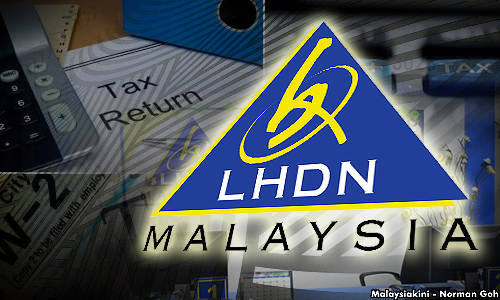
BN has defended itself against accusations that the rate of tax collection outpacing economic growth in the country was due to its alleged excessive spending.
BN Strategic Communications deputy director Eric See-To said that tax collection rate outpacing gross domestic product (GDP) growth was not unusual.
He said this in response to PKR vice president Rafizi Ramli who pointed out that the tax collection in Malaysia was RM60.3 billion in 2010 and had grown to RM112.3 billion this year, at an average growth rate of 11 percent a year, faster than our average GDP growth of five percent.
"He (Rafizi) said this is a bad thing and he compared this to Australia's tax collection average growth of 5.3 percent during the same period.
"However, Rafizi does not state that the GDP growth of Australia is just 2.7 percent during that period meaning that tax collections had also outpaced economic growth there – a fact which completely destroys Rafizi's own argument.
“Australia's example shows that income tax collection outpacing economic growth is not unusual,” See-To said in a statement today.
See-To also accused the Rafizi of using numbers to misconstrue the truth and called the Pandan MP’s latest statement yet another "sotong-goreng” (fried squid).
See-To also provided justifications for how tax collection rate could outpace economic growth in the country.
“The first scenario is the increased profitability of companies, rising income levels and increasing numbers of taxpayers. There is little doubt that many companies have seen increased profitability since... 2010.
“For example, the top two largest companies in Malaysia are Tenaga and Maybank. Tenaga's profit before tax increased from RM1.5 billion in 2009 to RM8.1 billion in 2016 while Maybank's pre-tax profits increased from RM1.7 billion to RM8.5 billion in the same period," he said.
See-To added that rising income also meant that those who were previously not taxable are now also paying taxes.
Another reason for the increased rate of tax collection was due to better enforcement, he said.
“More stringent enforcement and the implementation of the Goods and Services Tax (GST) have also encouraged companies, previously not registered with IRB, to come clean and pay their fair share of taxes and report more truthful sales figures,” said See-To.
Rafizi had accused the IRB of “hunting down” ordinary Malaysians and making them pay high taxes on top of GST while wages have remained largely stagnant. However, See-To disputed this.
“Rafizi should note that since Najib Abdul Razak became finance minister in 2008, the highest corporate tax rates have dropped from 27 percent in 2007 to 24 percent.
“While the tax for Small Medium Enterprises (SMEs) is now 18 percent (from 19 percent)," he said.
See-To added that income tax rate for those making less than RM100,000 a year had also fallen substantially.
According to the IRB, personal income tax for those making under RM100,000 and below fell from 24 percent in 2008 to 21 percent.
“When GST was implemented in 2015, changes to our income tax system also meant that 300,000 families earning RM4,000 per month no longer had to pay any income tax,” he said.
He added that 14.5 percent of Malaysia’s GDP came from taxes, which put the country behind Australia (25.8 percent), UK (34.4 percent), South Korea (26.8 percent) and Thailand (17 percent). - Mkini



No comments:
Post a Comment
Note: Only a member of this blog may post a comment.